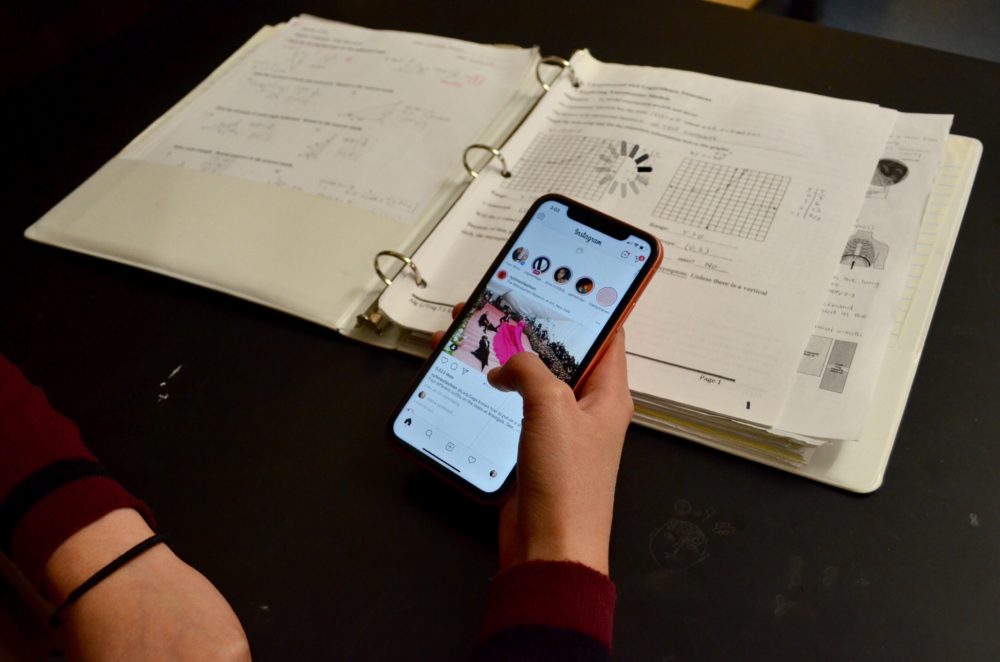
Social media has played a role in shortening people’s attention span by a significant amount. A student constantly refreshes Instagram feed as a means for instant gratification. Photo by Elyssa Phan
By Lylyan Yenson, Staff Writer
Scientists have found that the use of technology and the tiny screens in our pockets might be altering the way our brains’ work. According to a study by informED, many students today are found to have an attention span of about 10 to 15 minutes long. Some studies say that the human attention span has dropped to eight seconds, which is lower than the attention span of a goldfish. Another study shows that although the newer generation has the ability to switch from one topic to a new one quicker, the older generation has the ability to focus and learn more with a longer-lasting attention span
The main culprit behind this change is the smartphone. Market researcher Dscout found that Americans on average touch their phones 2,617 times a day. A survey done in 2016 showed that more than 40% of the answers claimed that the people checked their phones within five minutes of waking up and fifty percent claimed they checked them in the middle of the night.
Due to the constant distractions by the technology around them, people’s ability to focus on a task are weakened and a simple notification on our phone can lead to wandering or irrelevant thoughts. The short attention span found in the newer generation can lead to a poor performance at work or school, inability to complete daily tasks, missing details or information, communication difficulties, or anxiety.
The inability to focus on one thing for a long amount of time might have a larger affect students later in the future.
Technology is not the problem in this case. Technology can be considered a positive impact on education is used wisely. Many teachers use computers to show power points, share videos, or explain a topic in greater detail. Technology has helped improve the learning process and students from University of California Irvine reported scoring 23 percent higher on national exams after being given iPads to use in class.
To help improve attention spans, students can read before going to sleep, play an instrument (without interruptions) for 30 minutes, workout in the morning, practice learning a new language, drink more water, or chew gum. Teachers can also help keep the students’ attentions by involving students in lesson plans, cracking a couple jokes, or making ideas connect to relevant topics. Having a short attention span does not limit students from learning, it simply means that they must try harder to focus on the topic at hand.





